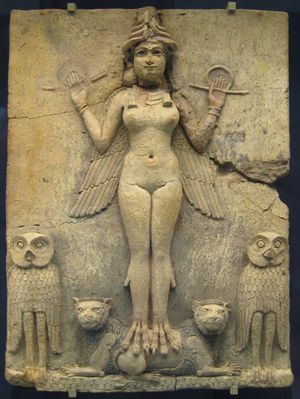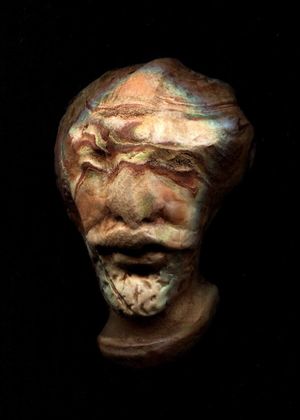Characters of Gilgamesh
Gilgamesh brings to life a captivating array of characters that embody the virtues, flaws, and complexities of human nature. From the larger-than-life hero Gilgamesh himself to his faithful companion Enkidu and the gods who shape their destinies, each character plays a vital role in the narrative’s exploration of power, friendship, mortality, and the human condition.
Gilgamesh: The Heroic King

Gilgamesh, the eponymous hero of the epic, stands tall as a symbol of power, strength, and ambition. As the ruler of Uruk, he possesses unparalleled physical prowess and unwavering determination. However, his arrogance and tyranny overshadow his noble qualities. Through his epic journey, Gilgamesh undergoes profound transformations, questioning his mortality, the nature of leadership, and the true purpose of his power. His character embodies the tension between hubris and humility, challenging readers to examine the pitfalls and potential for growth within themselves.
Enkidu: The Wild and Noble Companion
Enkidu, a wild man created by the gods in response to Gilgamesh’s arrogance, serves as the perfect foil and companion to the king. Initially disconnected from human society, Enkidu undergoes a profound transformation through his friendship with Gilgamesh. He evolves from a primal, instinct-driven creature to a noble and empathetic individual. Enkidu’s character highlights the redemptive power of human connection, the importance of empathy, and the capacity for personal growth and self-realization.
Shamhat: The Temple Prostitute
Shamhat, a temple prostitute, plays a pivotal role in Enkidu’s story. She is portrayed as a wise and influential figure who initiates Enkidu into the complexities of human civilization. Shamhat’s intimate encounter with Enkidu serves as an awakening, introducing him to the pleasures, emotions, and moral nuances of human existence. Her character represents the duality of power and compassion and explores the transformative potential of intimate relationships.
The Gods: Shaping Destiny
The gods, such as Shamash, Ishtar, and Ea, are significant characters within Gilgamesh, shaping the destiny of both heroes and playing catalysts in their transformative journeys. Rooted in the rich mythology of Mesopotamia, these divine beings bring both benevolence and complexity to the story. The gods’ interactions with mortals in the epic highlight the influence of divine forces on human lives, while also exploring the complex relationship between humans and the divine.
The gods’ interactions with mortals in Gilgamesh highlight the intricate moral dynamics between the divine and the human. Divine intervention occurs both as acts of assistance and as tests or punishments. The gods’ actions raise questions about the nature of morality, the balance between divine sovereignty and human agency, and the consequences of challenging divine authority. The characters of the gods demonstrate that even within the divine realm, conflicting motivations, rivalries, and moral ambiguity exist.
Shamash: The Sun God and Guide
Shamash, the radiant sun god, is a prominent figure within Gilgamesh. Known as the god of justice and divine guidance, Shamash acts as a mentor and protector to Gilgamesh, offering wisdom, encouragement, and divine intervention. He serves as a moral compass, ensuring that justice is served and assisting mortals in their quests. Shamash’s presence underscores the belief in a higher moral order and the importance of divine guidance in the human journey.
Ishtar: Goddess of Love, War, and Desire

Ishtar, the captivating goddess of love, war, and desire, embodies both beauty and danger. Her character presents a complex interplay between power, passion, and divine capriciousness. Ishtar’s pursuit of Gilgamesh and subsequent wrath when rejected is a pivotal moment in the epic, showcasing the destructive potential of unbridled desire and the consequences of defying the gods. Ishtar’s character raises questions about the nature of divine love and the challenges that arise when mortals engage with the divine realm.
Ea: God of Wisdom and Craftsmanship
Ea, the god of wisdom, craft, and water, is often portrayed as a benevolent deity within Gilgamesh. His character is associated with intellect, cunning, and the ability to impart knowledge. Ea acts as a guardian and protector of humanity, warning Utnapishtim about the impending flood and advising him to build an ark. His wisdom and guidance symbolize the importance of intellect, resourcefulness, and the preservation of knowledge in navigating life’s challenges.
Anu, Enlil, and Other Gods
Anu and Enlil, among others, are prominent gods in the pantheon of Gilgamesh, although their roles may be relatively limited within the narrative. Anu, the sky god and father of the gods, is the supreme deity, associated with the divine hierarchy. Enlil, the god of the earth, wind, and storms, possesses immense power and authority, often making significant decisions that impact mortals. Other gods, such as Ninsun (Gilgamesh’s mother—see below), Sin (the moon god), and more, contribute to the tapestry of divine influences, familial connections, and moral complexities within the epic.
Supporting Characters
A rich tapestry of supporting characters weaves throughout Gilgamesh, providing depth, wisdom, and pivotal moments of growth for the heroes. From mentors to companions, and even adversaries, these characters offer unique perspectives and challenges that shape the journey of Gilgamesh and Enkidu.
Ninsun: The Wise and Supportive Mother
Ninsun, the mother of Gilgamesh and a goddess herself, embodies wisdom, strength, and unwavering support. As Gilgamesh's confidante and adviser, she provides guidance and offers prayers to the gods on his behalf. Ninsun’s presence highlights the importance of familial bonds, maternal wisdom, and the role of female characters in shaping the destiny of the heroes. Her character represents the nurturing aspects of divinity and showcases the strength and influence of motherhood.
Urshanabi: The Ferryman
Urshanabi, the ferryman tasked with guiding Gilgamesh on his journey to find Utnapishtim, represents a bridge between the mortal and divine realms. He assists Gilgamesh in navigating treacherous waters and acts as a mentor figure, imparting wisdom and guiding the hero towards his ultimate destination. Urshanabi’s character emphasizes the importance of assistance, guidance, and the role of individuals who help others on their transformative quests.
Utnapishtim: The Survivor of the Great Flood
Utnapishtim, a significant character in the latter part of the epic, holds the key to immortality. Having survived the Great Flood, Utnapishtim serves as a wise and compassionate figure who challenges Gilgamesh’s pursuit of eternal life. Through their encounter, Utnapishtim imparts valuable lessons about the inevitability of mortality, the acceptance of the human condition, and the pursuit of a meaningful life. His character highlights the futility of immortality and encourages Gilgamesh to seek wisdom and purpose within the finite existence.
Siduri: The Wise Tavern Keeper
Siduri, the tavern keeper, plays a brief but crucial role in the narrative, offering hospitality and insightful advice to Gilgamesh. She embodies wisdom, practicality, and a grounded perspective on life. Siduri encourages Gilgamesh to find joy in the present, reminding him of the ephemeral nature of human existence. Her character serves as a reminder of the importance of embracing life’s pleasures and finding contentment in the here and now.
Humbaba: The Fearsome Guardian of the Cedar Forest

Humbaba, the monstrous guardian of the Cedar Forest, poses a formidable challenge to Gilgamesh and Enkidu. Though initially seen as an antagonist, Humbaba’s character brings forth themes of courage, heroism, and the need to confront and overcome fears. The battle against Humbaba represents the heroes’ quest for power and glory, ultimately questioning the extent of human dominion over nature.
The Scorpion People, Bull of Heaven, and More
Additional supporting characters, such as the Scorpion People and the Bull of Heaven, add mythical elements and dramatic encounters to the epic. The Scorpion People guard the mountain pass, while the Bull of Heaven represents the destructive consequences of challenging the gods. These characters serve as obstacles and catalysts for personal growth, challenging the heroes to confront their limitations, question their motivations, and face the consequences of their actions.
